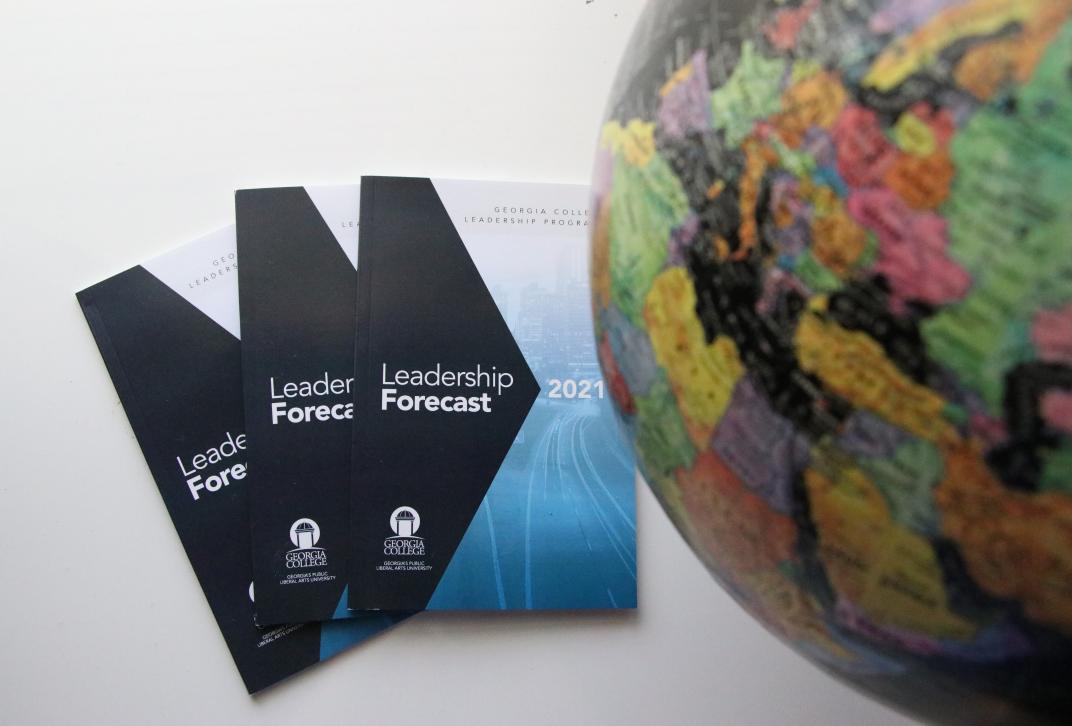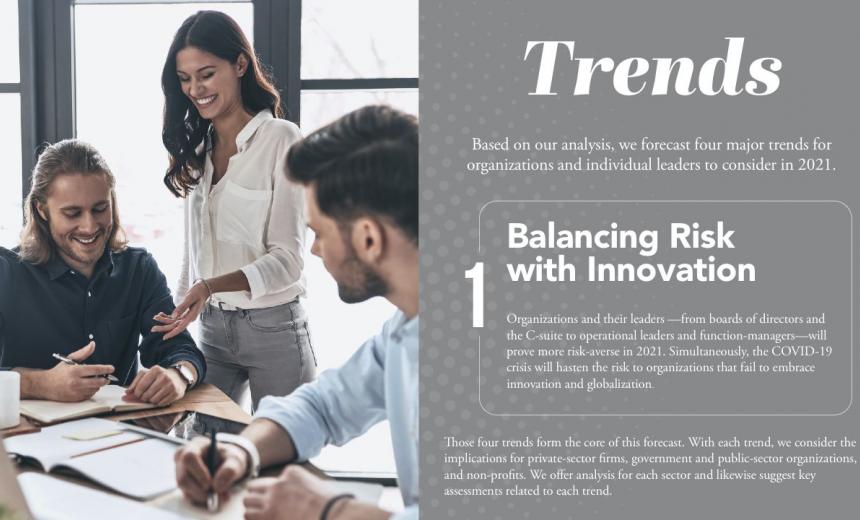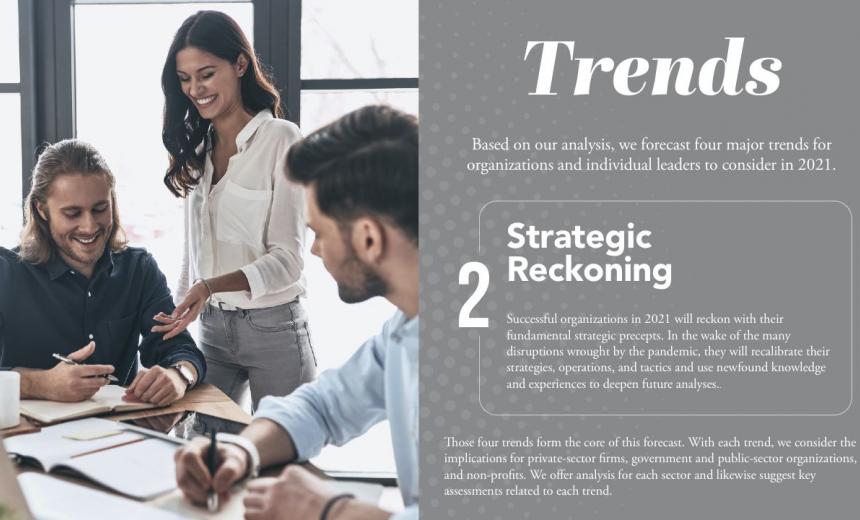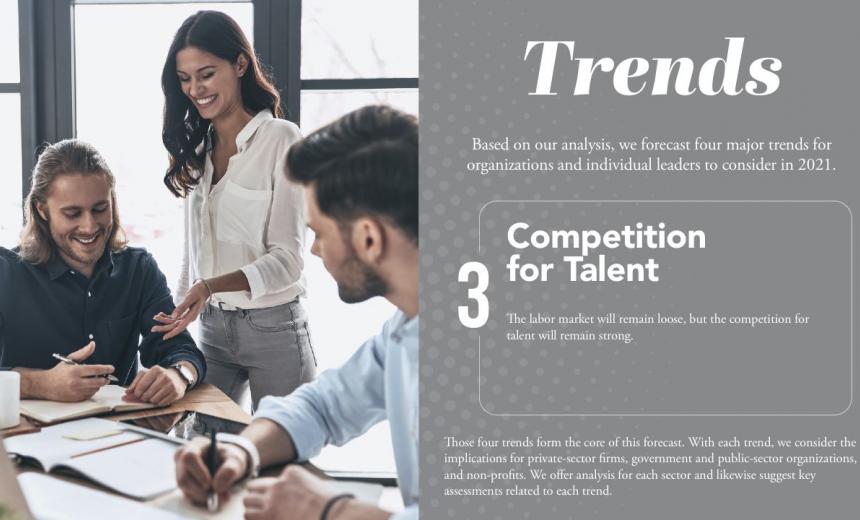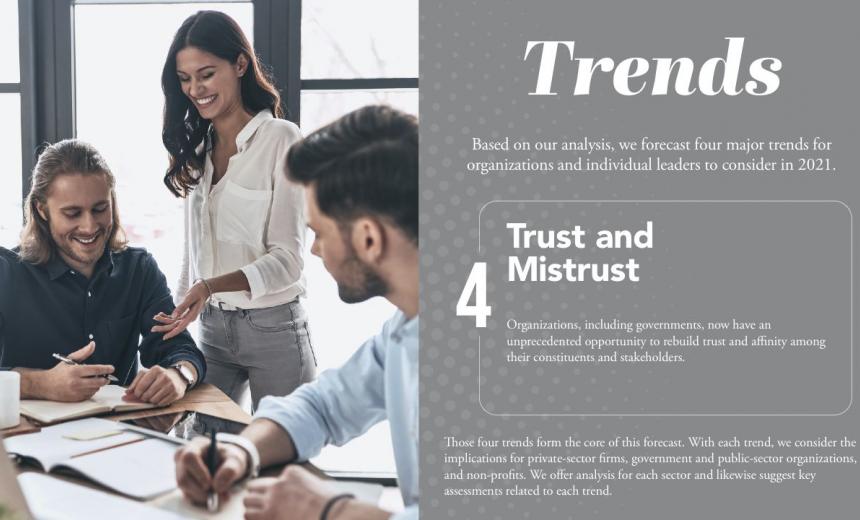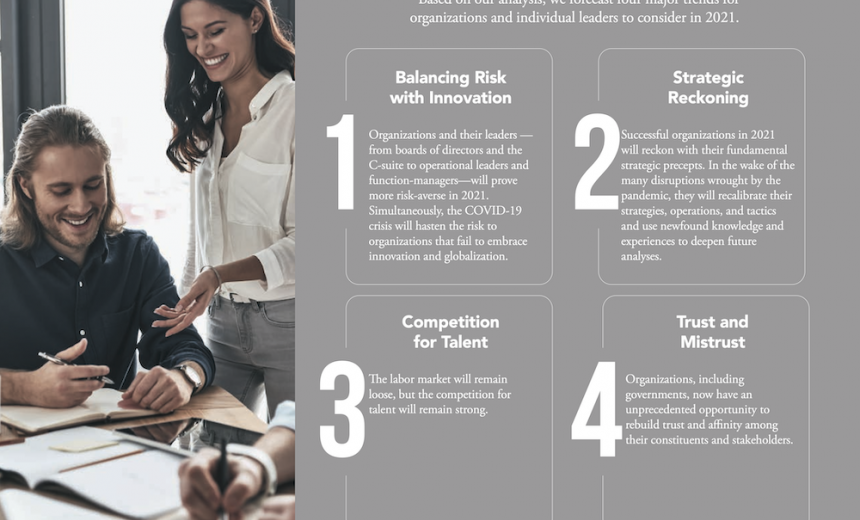At Georgia College, Leadership Means More
Our approach to leadership doesn't just focus on the bottom line—but on how individuals, groups, and organizations can serve the public good. We believe that every leadership challenge has a solution that can be found in the arts and sciences, and we have prepared this Leadership Forecast to encourage our readers and stakeholders to consider this unique moment in time and to fortify them with the leadership skills to be effective.
Read and Learn
Introducing the Leadership Forecast
Trends
Based on our analysis, we forecast four major trends for organizations and individual leaders to consider in the coming year.
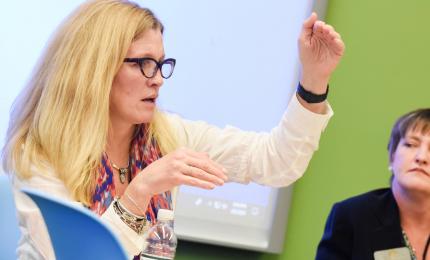
Join Us for an Event
Join Us
Take part in our ongoing discussions about leadership and for expert analysis from Georgia College's Leadership Forecast.
Who Should Read this Leadership Forecast
We recommend this Leadership Forecast for anyone with an interest in leadership for the public good, particularly:
- Leaders and managers in private enterprise.
- Employers and consultants who aim to build and sustain a culture of empowered leadership within their organizations.
- C-suite executives and boards of directors.
- Nonprofit executives and board leaders.
- Public sector leaders, including local and state elected officials, appointees, and policy-makers.
- Leaders of civic organizations and community groups and clubs, including chambers of commerce and development authorities.
Toolkit
To help you integrate our Leadership Forecast into your leadership and work across the coming year, we have created this toolkit for you.
Press and Media Kit
To assist our readers and Community Partners in sharing the insights of the Leadership Forecast, we have prepared a press and media kit.
Key Assessments
The key assessments offered here come in the form of tactical-level guidance and direct actions leaders can take.
- The COVID-19 crisis has hastened the arrival of Industry 4.0. Use this year to revisit some of your fundamental precepts of leadership.
- Leaders will do well to reflect upon, discuss, and document what they have learned in the past year about their organizations’ culture.
- Leaders should be careful not to retrofit their usual approaches into their new operating environments.
- Leaders and managers should renew and develop comprehensive talent development planning for their organizations. Education leaders need to recalibrate education delivery, including diversified and portable credentials and micro-credentials, and identify new ways of scaling their content delivery. Industry leaders need to prepare their talent development strategies for diversified, and even global, competition.
- Organizations committed to strengthening and protecting their talent pipelines should spare no effort to affirm their commitment to their members and employees.
- Leaders should consider how their organizations and networks provide outreach and offer appeal to younger generations. Particularly consider the so-called “Millennials,” the generation born between 1981 and 1995, and “Generation Z,” born after 1996.
- Leaders should work with their teams to review their organizations’ stakeholder analyses in the coming year.
Our Must-Reads
Our goal with this list it to offer you recommendations for our unique historical moment. While many have been published in recent years and reflect the times in which we live, we have also chosen venerable classics that will provide insight and lend interpretive depth to your leadership in the coming year and beyond.
Learn More
Georgia College offers a range of programs to empower our stakeholders as leaders for the public good.

Support Our Mission
Our work would not be possible without the support we receive from individuals, organizations, and foundations. We invite you to support Georgia College Leadership Programs as we prepare the next generation of leaders for the public good.
